Perthshire charity champion Jock Mcinnes is returning to the ring to take on a new role helping boxers who have fallen on hard times.
The 67-year-old Fifer, who lives in Scone, has been appointed the ambassador for the Ringside Charitable Trust in Scotland.
It means stepping into the shoes of his old pal Ken Buchanan, who died in April.
The former Black Watch soldier, who has raised millions of pounds for various charities over the years, is honoured to be following in such illustrious footsteps.
But the former British Army boxing champion has revealed that boxing was something he was directed into at a stage in life where he needed to be put back on the straight and narrow.
“I started boxing in 1974 because I was never out the jail,” he says.
“I was always in bother with the Military Police.
“I was 17 and out and about drinking and fighting. Just daft stuff.
“I’d never boxed before.
“But they said ‘put your fighting to use and we’ll put you in the boxing ring’. It worked.
“I was put in a fantastic direction, into the boxing.
“I went away to the army boxing team and that sort of woke me up to a bit of sense.”
Jock was born and bred in Fife before joining The Black Watch
Born at the former Craigtoun Maternity Hospital outside St Andrews, Jock grew up in Methil.
After attending Methil Primary School and Kirkland High School, he joined the Black Watch as a cadet aged 15.
After a spell at Bridge of Don, he joined the regiment at Colchester.
From there, he had spells at Catterick, Berlin and spent two “fantastic years” in Hong Kong where he ran a water sports centre.
But although he did 24 years in the forces, Jock laughs that any ex-Black Watch readers will say “yeah, but he wasn’t in uniform”.
That’s because he spent most of his time in the gym where he taught advanced physical training and outdoor pursuits.
What were Jock’s early experiences like as an army boxer?
“I was encouraged to join the army boxing team by an English Black Watch platoon sergeant called Tony Firth,” recalls Jock.
“Tony was a good boxer himself and said ‘I could use you in inter-company boxing’.
“I progressed from there.
“My first fight was against a boy called Cruickshanks from a different company.
“I beat him – I won’t say no problem – but I beat him, and progressed.
“The training was hard. But I did enjoy it because if you were in the boxing team, you got better food and more time off.
“People sort of looked up to you, and that would be the same for the rugby and the football if you were part of the team.”
Jock’s dad Bill was a very good amateur boxer.
Bill had boxed Ken Buchanan a couple of times.
But for Jock, prior to his early troubles in the army – and as a 5’5” “wee skinny boy” – boxing was never something he had considered himself.
In 1977, just three years after taking up the sport, Jock, a flyweight fighter, was crowned the best eight stone boxer in the British Army.
It was “massive” at the time with every regiment in the army putting forward fighters.
He boxed locally in Colchester and also fought others through the season including the police from London.
Jock can’t remember who he fought against in the army finals at Aldershot.
But he remembers he had to lose about two stone to make the eight stone weight and win.
Dundee was a ‘great city for fighting in’ discovered Jock after army posting
Jock was posted to Dundee to teach the cadets adventure training.
It was while he was in Dundee that he went to the local St Francis Boxing Club and boxed there.
He ended up winning the Midlands District Championship.
He remembers thinking Dundee was a “great city for fighting in”.
From there he boxed for Scotland against Ulster, London and Ireland.
He also fought against Wales in Dundee’s Caird Hall.
But any suggestion that he might turn professional soon hit the canvas
“I was asked to turn professional way back but I was married and had a young boy,” he says.
“I thought I’d have to leave the army to turn pro, and if I didn’t make it that’s a waste of all the years I’ve done in the forces.
“I was thinking pension and things like that.
“It would have been a big step.
“I don’t know how far I would have got. I never went any further.
“But boxing has always been a massive part of my life.”
Jock says he “probably went on a wee bit longer” than he should when it came to fighting.
After hanging up his boxing gloves, he moved into officiating.
He did the time keeping at the European Championships in Edinburgh in 1986.
He also worked in the boxing office at the city’s 1986 Commonwealth Games.
But even then, he would still get calls asking him if he wanted to fight.
“I’d get a phone call at the gym saying ‘Jock there’s a boy in Haddington, he’s got a reputation. Do you want to fight him’?
“I’d reply ‘What weight do you want me? I can get to any weight you want me to be’.
“I’d fight anybody.”
When did Jock first meet Scottish boxing legend Ken Buchanan?
Jock remembers how, after a few drinks, his dad used to tell him about the times he fought Ken Buchanan.
But the first time Jock met Buchanan in person was 1985.
Jock and a pal jumped in a car and went to see Buchanan at the pub he owned in Portobello.
It was a memorable encounter.
“We went down into the cellars and could see him sitting at the far end,” recalls Jock.
“We had to walk past all these fridges and televisions and that. Quite a warehouse!
“We thought it was a beer cellar! I never asked any questions.
“But he was sitting there signing a book.
“’Can I help you boys?’, he said. I explained who I was. I told him a lie – I told him that I had written to him and asked him to come to our regimental boxing and hadn’t had a reply. I asked him if he still wanted to go?
“Ken replied ‘Didn’t get your letter pal, but I’ll go’.”
Jock arranged for Buchanan to be picked up.
He explained the dress code because it was a military occasion.
Noting that Buchanan had a book out, Jock asked him if he wanted help to sell a few.
When Jock said he could sell 200 in the barracks, Buchanan “just about fell off his chair” – and they kept in touch from that day on.
Jock and Ken Buchanan were friends for decades
The pair would attend events and socialise together in Perth.
Jock visited him regularly in his home, his care home and in hospital, and helped him with his role as ambassador for the Ringside Charitable Trust.
The former world lightweight champion, who battled alcoholism, had been suffering from dementia for some time before his death, aged 77.
In 2020, less than three years before Buchanan died, Jock wrote a book called My Pal The Boxing Legend, Ken Buchanan.
The book is a series of rounds containing short stories with the author enjoying life with Scotland’s greatest ever boxer.
Conscious of Buchanan’s struggles with life, Jock explained how he was inspired to write the book after the tragic demise of his favourite Scottish boxer of all time, Benny Lynch.
“A lot of people don’t know that Benny Lynch was in asylum, he went to a monastery and he died of drink,” says Jock.
“A lot of people didn’t know about what went on outside of his boxing life, which I thought was a shame.
“I didn’t want that to happen to Kenny. I wanted people to know what had happened to him after boxing.”
Jock’s fundraising efforts and a determination to help former boxers
Jock, who has raised well in excess of £2m over the years through various means, and was made an MBE in recognition of his charitable work, still loves the sport.
But he is also painfully aware of how many former boxers struggle when they give up the discipline of training and competing.
The Ringside Charitable Trust helps boxers who are struggling with problems associated with the sport.
That might be drug or alcohol issues, mental ill health, or injuries.
His goal is raise awareness of the Ringside Charitable Trust’s work at boxing events across Scotland.
He also plans to get round all the boxing clubs in Tayside and Fife, and beyond, to ensure boxers know there’s support there when they need it.
“I think for a lot of boxers, especially professional boxers, when they leave it’s like leaving the forces,” he says.
“You’ve been well looked after for all this time. You are well disciplined.
“Then as soon as that stops, what do you do? You might have a few bob in your pocket.
“You go to the pub. Being sportsmen, everyone wants to buy them a drink.
“That’s probably the wrong thing to give them at times.”
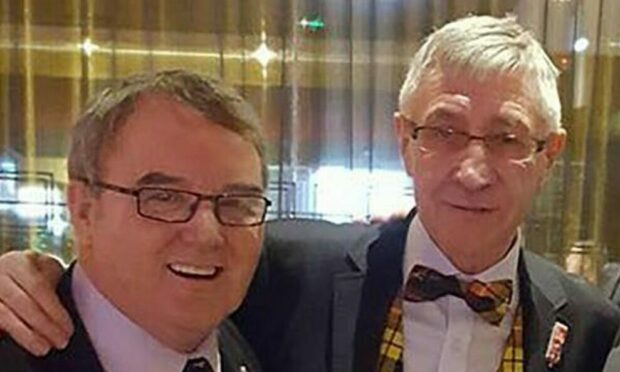
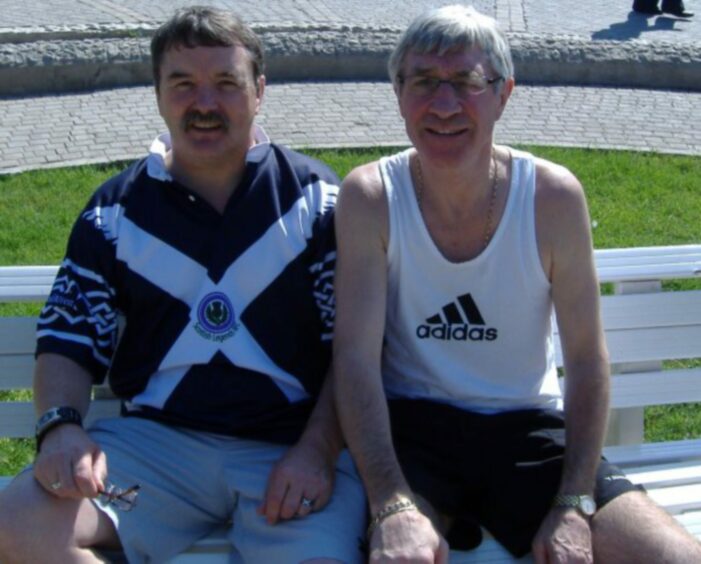
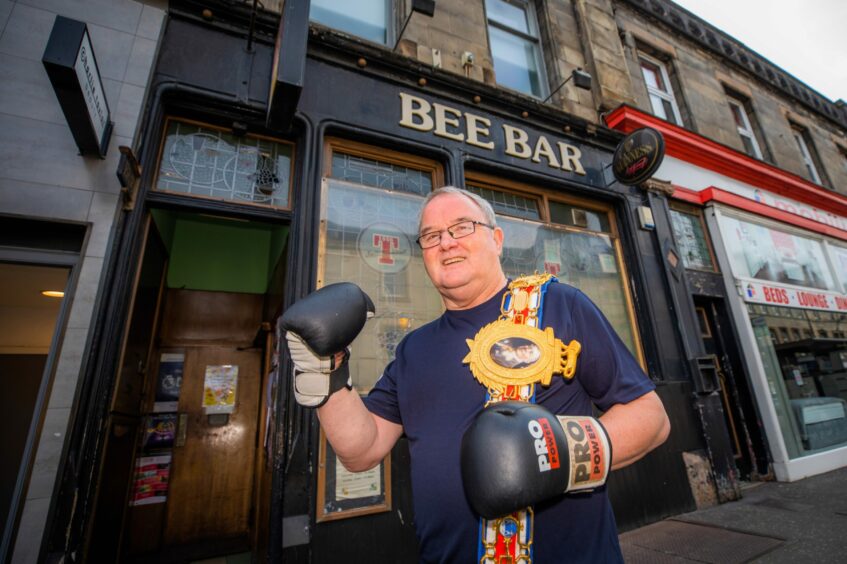
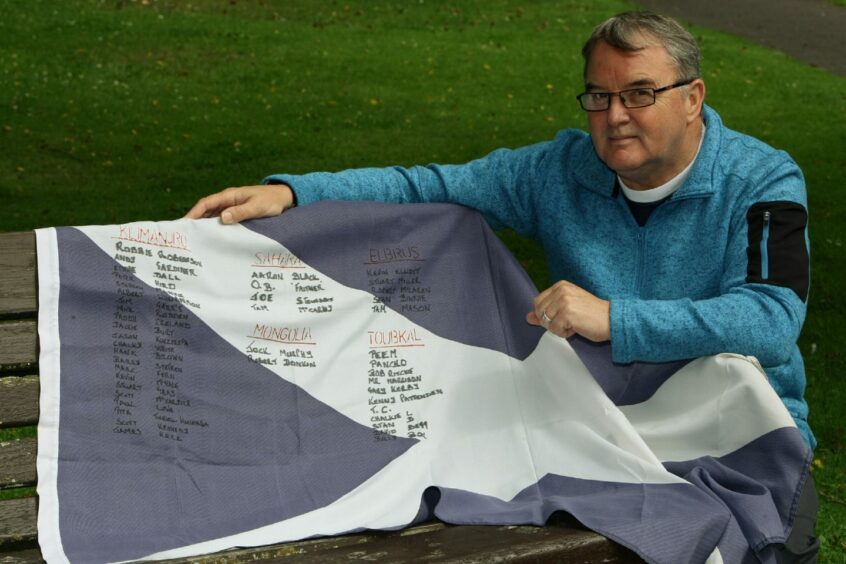

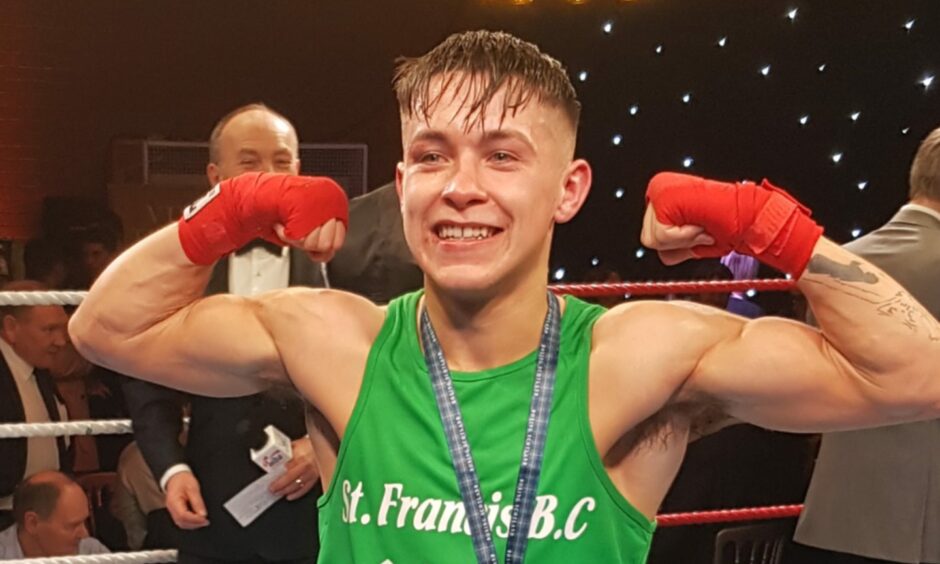
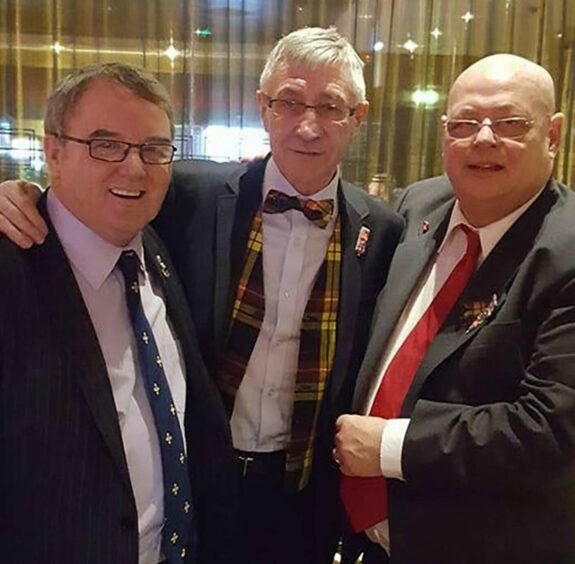
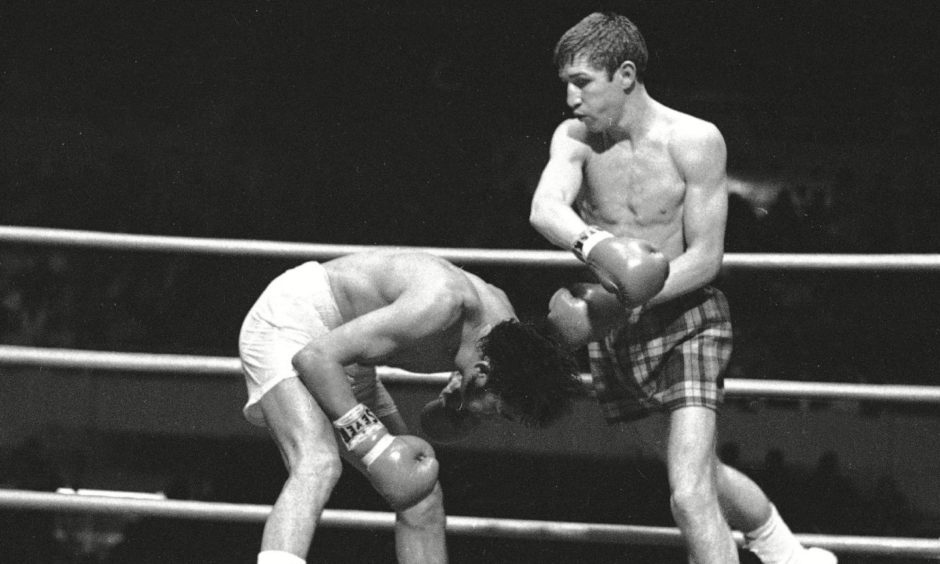
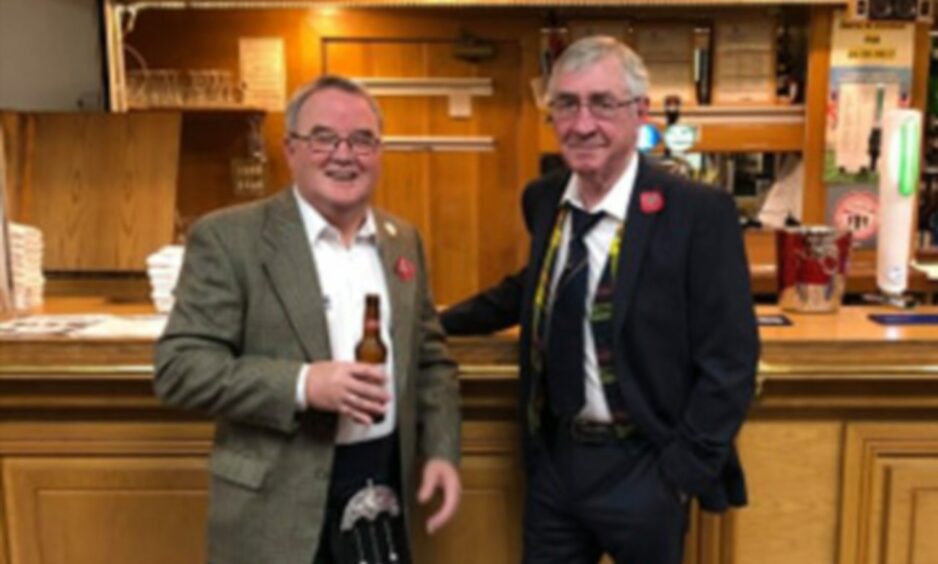
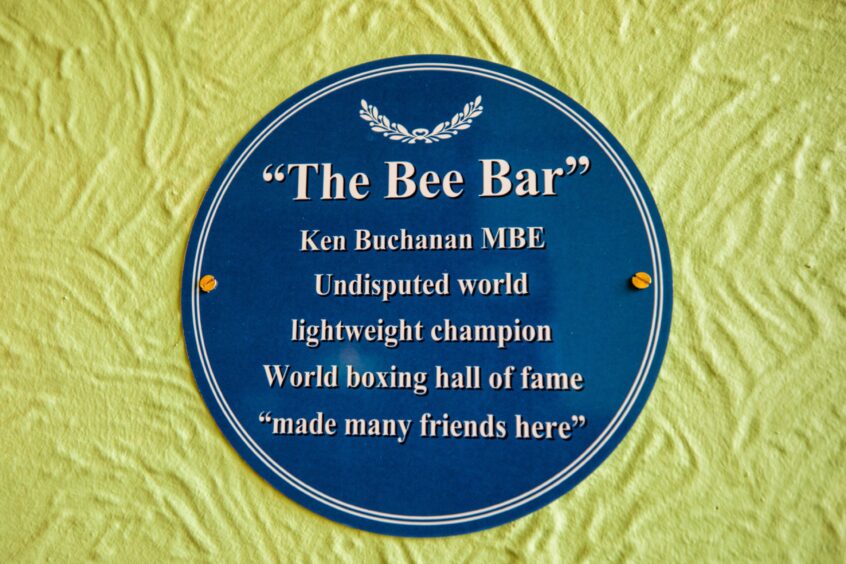
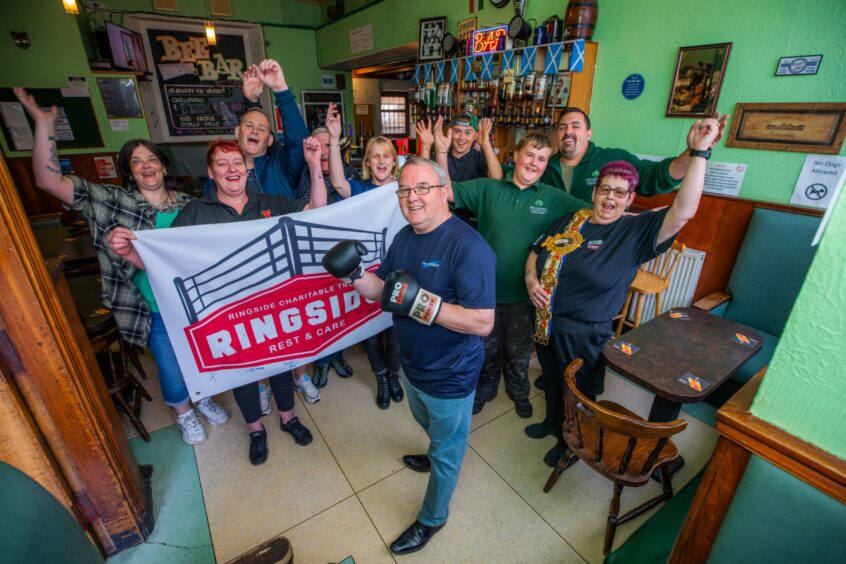










Conversation